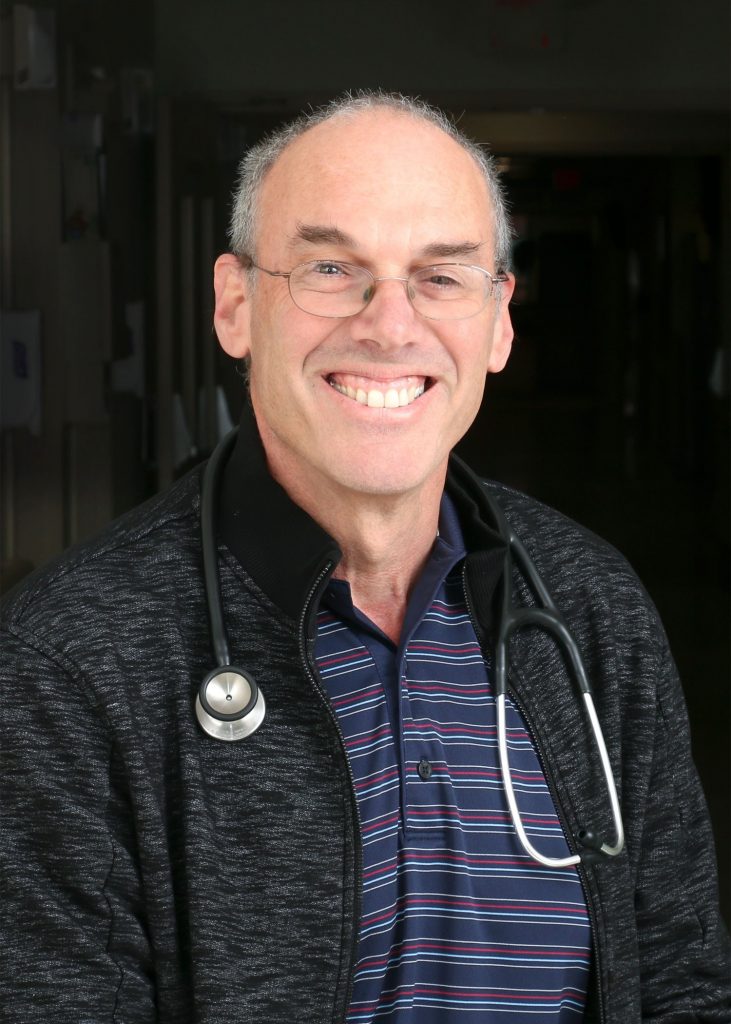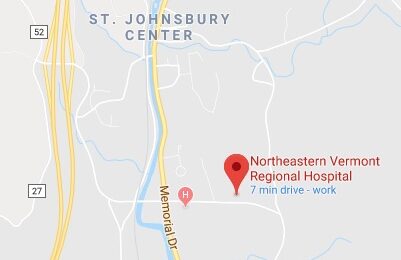Tell Me Again What You do?
 By NVRH Hospitalist David Brody, MD
By NVRH Hospitalist David Brody, MD
March 4, 2021 was National Hospitalist Day, which occurs annually on the first Thursday in March. The day celebrates the fastest growing specialty in modern medicine and hospitalists’ contributions to healthcare.
A friend of mine once offered the opinion that if you couldn’t describe your job in one sentence then you probably didn’t know what you did. And neither would the person asking. While there is probably some truth in this, I am going to make an exception for hospitalist, a relatively new position in the medical world.
Back in the day – say, half a generation ago – when a patient was admitted to the hospital they would be seen and managed by their regular doctor. This had the obvious advantage that the patient and doctor would know each other well – the patient would feel comforted by a familiar and trusted presence, while the physician would be up to date on any underlying conditions. However, the clear drawback was that the doctor would in the course of things spend most of their day away from the hospital (and patient) at the office, and the hospital work flow was compressed into two hurried sessions – morning rounds, in which an assessment was made and plans formulated; and evening rounds, in which one followed up on the day’s developments, and made any necessary course corrections.
However, illness does not always cooperate with our schedules, and one could always expect something to come up during the day, necessitating either a disruption at the office as the doctor rushed to the hospital, or an attempt to manage over the phone what may not have always been best so managed. We did our best with the competing demands on time and energy.
Out of such inefficiency was eventually born the concept of the hospitalist, a physician who works exclusively at the hospital managing all the inpatients. Obviously they will not be their patients, in the sense that they will not have been seeing them in the office, and will likely not even know them at all. However these disadvantages are easily overcome and outweighed by the constant presence and availability of the hospital physician. Just ask any ICU nurse with an unstable patient.
Overall, the record shows that the institution of a hospitalist system has been an overwhelming success and has all but supplanted the old rounding system. While patients may still occasionally ask “Where’s my regular doctor?” Most seem to have come to understand the virtues of the new way, and are appreciative of the ready availability of a physician.
Here at NVRH, the hospitalists are all trained in the broad spectrum of acute care medicine, with a background in either internal medicine or family practice. They are prepared to manage a diverse range of diseases, from heart failure to COPD to diabetes to stroke – essentially anything. If we need additional help, we have a team of specialists here at NVRH, or can reach out to a tertiary care center (DHMC or UVM, generally) for even more specialized care and consultation. But throughout a patient’s stay, the hospitalist remains the captain of the ship and retains ultimate responsibility for formulating and managing the plan of care.
A hand on the helm at all times has proven to be good medicine!
David S. Brody, MD
NVRH Night Hospitalist
Sitemap | Privacy Policy | Site developed by Flek, Inc.
Northeastern Vermont Regional Hospital © 2020

